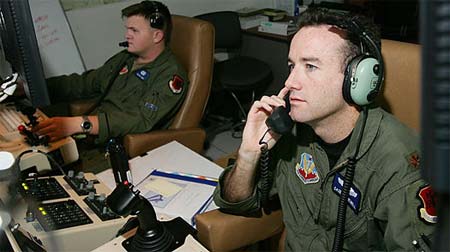Sunday 2 September 2012

Musings by Shahidul Alam


If Smedley Butler was living, he?d probably have agreed with Peter Ustinov the playwright, who said recently, ?Terrorism is the war of the poor, and war is the terrorism of the rich.?
And what about those who decide? Those who push the bigger joystick? In Shakespeare?s plays, says Stephen Greenblatt, the ruler serves as a model and a test case. ?If his actions go unpunished, then, to paraphrase Dostoevsky, everything is permitted.?
Has everything already become permitted? For, as Macbeth had said, ?I am in blood; stepp?d insofar that, should I wade no more, returning were as tedious as to go o?er.?
First published in New Age on 7th December 2009
Landslides are dangerous. Things get buried. People get hurt. The 9th parliamentary elections was to return Bangladesh from a two year military backed caretaker rule to an elected Government. The gathering on the last campaign day was massive, but there were fewer women and more people with white caps than one expected. The BNP candidate in Paltan Maidan boasted of how EVERY household in his candidacy, had assured him of their vote. Awami League candidates, the previous day, postured similarly, but both sides probably felt there was a reasonable chance of winning. The two-year gap between BNP’s misrule and the elections, might have eroded some of the moral gains that Awami League would otherwise have had. Voters sometimes have short memories. A landslide election win for anyone was not on the cards.
The Bangladeshi voter however, is remarkably savvy. They voted out Bhutto in 1971. Despite genocide, it did lead to independence. Since then, in every reasonably free and fair election they have had, they have voted with their heads. Hasina’s lack of repentance about BAKSHAL and previous Awami League misrule cost her the 1991 elections. Khaleda’s police fired upon farmers demanding fertilisers. Even a rigged election didn’t help her in 1996. ‘Safe’ seats of numerous ministers were lost in the re-taken polls. Hasina blew it in her term with her thugs causing havoc on campus and her ministers demanding that journalists be beaten up. The votes went to BNP. Khaleda went overboard yet again, with corruption reaching new heights, and her sons unleashing terror. Rising prices didn’t help. Khaleda made an attempt at apology. It was too little too late. The pendulum swung. History does not appear to be either party’s strong point.
There has however, been a change in the recent script. Political skirmishes in the past, were largely between political cadre, and localised. A few cocktails might have been thrown, but since the killing of general Zia, there had been few assassination attempts. Until recently. Bomb attacks were a new thing. The capture of trucks laden with small arms. The vigilante groups in the rampage in the north. The targeted attacks on secular scholars, were new. Assassination attempts on Hasina took political violence to new levels. The BNP brought in its own vigilante. The black bandanas of the Rapid Action Battalion became another source of terror with hundreds of ‘crossfire’ deaths to their credit.
Against this backdrop, the landslide win of the Awami League, had analysts gushing with excitement. The superlatives flowed. People cheered this ‘historic victory’. A change of government generally starts with a witch-hunt, traditionally meted out to the opposition party previously in power. This caretaker government had stayed rather longer than usual. Given the documented torture of ‘rajkumar’ Tariq Zia (Khaleda’s son and the general secretary of her party), BNP’s return to power would not have been so comfortable for the incumbent government and its unofficial backers. Hasina’s promise of ratifying the misdeeds of this government meant she was the safer bet.
Accusations of the military having actively engineered the Awami League win is probably exaggerated, though news of intimidation was not infrequent, particularly in the Chittagong Hill Tracts. But that too is history. Hasina’s position regarding her neighbours is more pertinent. She has already declared solidarity towards Myanmar’s Aung San Suu Kyi. The relationship towards big brother India, will probably have more to do with the relationship with bigger brother USA. The US has always played a major role in recent subcontinental politics. The 7th fleet in the Bay of Bengal was needed when the USSR was dominant. Today, the US, Israel and India are close allies, the war on terror being a collective pet project. A pliant military and a grateful Hasina will both play the game. The routing of Jamaat in the elections has to do with people’s sentiments. The war on war criminals to the war on terror is a small bridge to cross. The fluttering flag of democracy will obscure a few indiscretions along the way.
I am working with Mr. Phil Gram, lobbyist for UBS, who will be my replacement as Minister of the Treasury in January. As a Senator, you may know him as the leader of the American banking deregulation movement in the 1990s. This transaction is 100% safe. This is a matter of great urgency. We need blank check. We need the funds as quickly as possible. We cannot directly transfer these funds in the names of our close friends because we are constantly under surveillance.
My family lawyer advised me that I should look for a reliable and trustworthy person who will act as a next of kin so the funds can be transferred. Please reply with all of your bank account, IRA and college fund account numbers and those of your children and grandchildren to wallstreetbailout@treasury.gov so that we may transfer your commission for this transaction. After I receive that information, I will respond with detailed information about safeguards that will be used to protect the funds.
Yours Faithfully Minister of Treasury Paulson
Source:
Source: Andrew Sullivan’s blog via